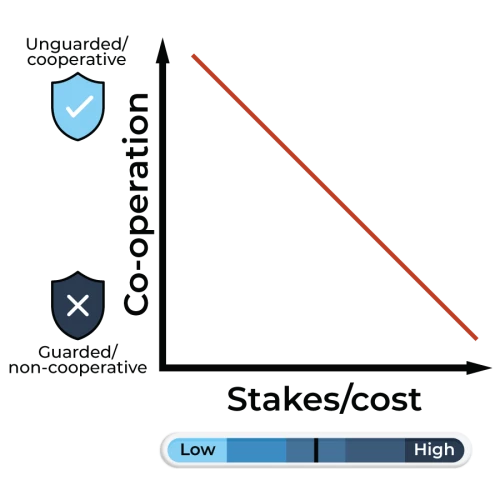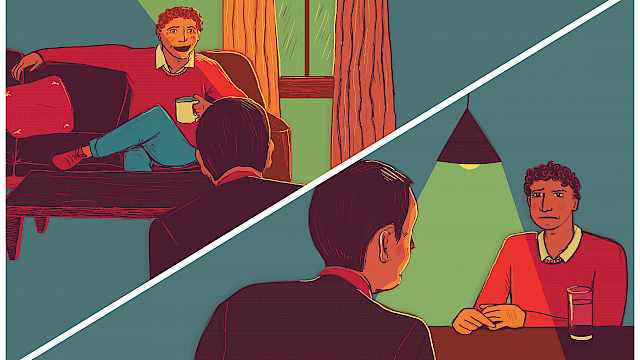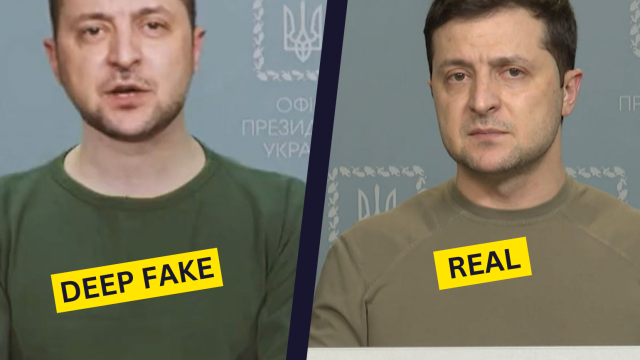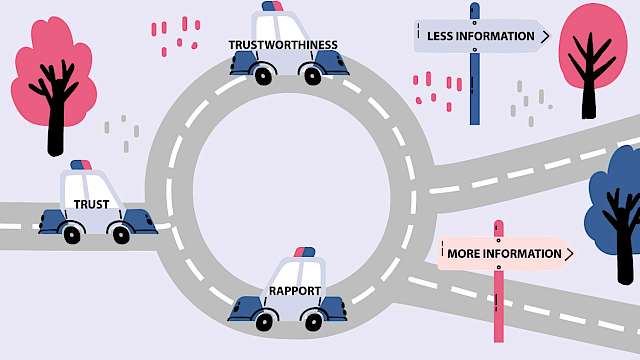[…] [T]the brother should be careful not to give the enemy any vital information (p. 159). […]. During the interrogation, say only the things that you agreed upon with your commander. Do not be concerned about other brothers (p. 168).
The Al-Qaeda Training Manual
The above excerpt is part of the guidance given to Al-Qaeda operatives who find themselves in an investigative interview. Such interviews are social interactions in which law enforcement interviewers seek information from people (i.e., interviewees) for security or legal reasons. My collaborators and I have begun to examine how interviewees, for example, Al-Qaeda operatives, decide what to disclose. Existing research heavily focuses on the amount of information interviewees reveal, which assists in grasping what makes interviewees communicate. However, we need to know precisely what interviewees disclose and why they choose to share the information they do. What counts as vital information from an Al-Qaeda commander and operative point-of-view?
We offer a sense-making approach to investigative interviewing that better anticipates what interviewees might decide to say. Accounts indicate that interviewees typically face conflicting motivations to co-operate with the interviewer when being questioned.
- (a) They perceive that disclosing some information might help them achieve material benefits — for example, a lesser prison sentence (p. 807). That possibility could keep an Al-Qaeda operative engaged in speaking about things previously sanctioned by their commander. So on certain topics, they may be willing to co-operate.
- (b) They safeguard certain self-interests, leading to the withholding of some information. For example, the instruction by the Al-Qaeda manual not to reveal vital information, lest the revelation disrupt a planned attack. On these subjects, interviewees will be less likely to co-operate.
My collaborators and I predicted that sanctioning what an operative can reveal and the so-called vital information (to conceal) arises from a cost-benefit analysis. That process determines what could be disclosed to reveal benefits and avoid costs safely. This sense-making leads us to hypothesise that interviewees might view any given piece of information an interviewer requests across two axis: low to high stakes, and whether it should be guarded or unguarded.
Low Stakes information is unguarded: Some information could be viewed as unlikely to attract a cost. That is to say, their disclosure is unlikely to assist in thwarting a planned Al-Qaeda attack, for example. Simultaneously, revealing such information might make the interviewee appear cooperative or willing to engage. These are the things an Al-Qaeda commander is likely to sanction an operative to disclose. We predict that interviewees need little to no convincing to disclose low-stakes or unguarded information.
High Stakes information is guarded: Conversely, some information could be viewed as costly to reveal — things that might foil an imminent terror plot, returning little tangible benefits to Al-Qaeda, for example. These are the things that the Al-Qaeda manual views as vital and warns operatives to refrain from disclosing when being interviewed.

Moving to disclosure: the journey from guarded to unguarded
We predict that if an interviewer gets an interviewee to disclose such information, it means the interviewer somehow managed to influence the interviewee’s cost-benefit calculations — such that what was high-stakes now resembles low-stakes information.
It is worth noting that what becomes low-stakes, unguarded, high-stakes, or guarded information is complex. Things can change depending on the interviewee and the specific circumstances that led to the interview. For example, commanders and operatives might categorise different things as vital information depending on specific Al-Qaeda missions and cells. “During the interrogation, say only the things that you agreed upon with your commander. Do not be concerned about other brothers (The Al-Qaeda Training Manual p. 168).” Being cognisant that, generally, interviewees determine what to disclose via (an intuitive) cost-benefit analysis can simplify the understanding of the mechanisms underlying disclosure—while allowing practising interviewers to appreciate the complexity specific scenarios bring.
Risk appetite
Our recent research, which frames scenarios such that some information is riskier to disclose than others, supports the cost-benefit sense-making approach to disclosure in interviews. Interviewees typically share information they perceive would achieve benefits while taking minimal risks. People are most forthcoming with details whose features resemble unguarded information and most unyielding with things they perceive would be costly to disclose (i.e., guarded information). However, when examining low- versus high-stakes information, we have also found that there was a high level of individual variance in assessing what was risky to disclose. Sometimes, interviewees prefer taking the risk of disclosing high-stakes information; other times, they play it safe and stick to disclosing low- rather than high-stakes information. Risk appetite depends heavily on the specific circumstances surrounding a specific interview. Thus, it is crucial for interviewers to continually strive to decipher the topics an interviewee deems more or less risky to converse about. Then, interviewers can adapt accordingly to elicit the particular information they seek. We hope to build on this budding sense-making approach to assist researchers in developing practically relevant studies and help practitioners better anticipate how interviewees might behave.
Read more
Granhag, P. A., Montecinos, S. C., & Oleszkiewicz, S. (2015). Eliciting intelligence from sources: The first scientific test of the Scharff technique. Legal and Criminological Psychology, 20(1), 96–113. https://doi.org/10.1111/lcrp.12015
Neequaye, D. A., Granhag, P. A., & Luke, T. J. (2023). Exploring how members of illicit networks navigate investigative interviews. Royal Society Open Science, 10(5), 230450. https://doi.org/10.1098/rsos.230450
Neequaye, D. A., Luke, T. J., & Kollback, K. (2021). Managing Disclosure Outcomes in Intelligence Interviews. PsyArXiv. https://doi.org/10.31234/osf.io/tfp2c
Soufan, A. (2011). The Black Banners: The Inside Story of 9/11 and the War Against al-Qaeda. W. W. Norton & Company.
Copyright Information
Image credit: © Photographee.eu | stock.adobe.com







